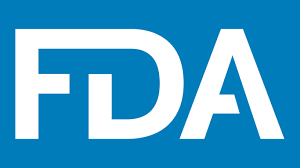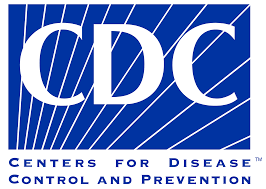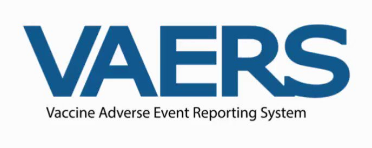Vaccine Safety
Safety of any drug is paramount, and most countries have structures in place to monitor and manage the approval of new drugs, and monitoring & management of existing ones.
In New Zealand we have Medsafe. In the USA it is the FDA, Canada it is Health Canada, and in England it is The Medicines and Healthcare Products Regulatory Agency (MHRA).
What is important to understand is that although these organisations employ qualified medical professionals, with the appropriate experience to evaluate research, none of them appear to undertake or initiate research themselves on the products being evaluated, and their appears to be no budget for anything other than for the collation of statistics and reports through their various adverse events systems.
What data does Medsafe review in medicine applications?
- The acceptability of the proposed product trade name.
- Evidence of Good manufacturing practice (GMP) to demonstrate the medicines are consistently manufactured under acceptable quality standards.
- Chemical and biological data that supports the source, manufacture, characterisation, quantity, quality, storage and stability of the drug substance (active ingredient) and drug product (finished product).
- The quantity and quality of other non-active ingredients (excipients) present in the medicine.
- The formulation of the medicine (eg, tablet, suspension, capsule, injection).
- Agreed specifications (quality tests) that the medicine must meet before it is released to be sold or dispensed.
- Results of bioequivalence studies that evaluate the therapeutic equivalency of generic medicines and the corresponding brand name (innovator) products.
- Results of clinical studies in people that demonstrate new medicines are safe and effective for the treatment of a particular disease or condition.
- The quality of the medicine’s packaging and the content of the medicine label.
- The information presented in the medicine data sheet and package insert (eg, consumer medicine information (CMI)). (1)
What is critical to understand here is that this is entirely a clerical or paperwork process. There is no local medical research undertaken.
For the Pfizer Covid-19 vaccine all research was undertaken only by Pfizer themselves, or by contracting companies. This was highlighted recently when a whistleblower working for one of the contractors, Ventavia, exposed great problems
” for researchers who were testing Pfizer’s vaccine at several sites in Texas during that autumn, speed may have come at the cost of data integrity and patient safety. A regional director who was employed at the research organisation Ventavia Research Group has told The BMJ that the company falsified data, unblinded patients, employed inadequately trained vaccinators, and was slow to follow up on adverse events reported in Pfizer’s pivotal phase III trial. Staff who conducted quality control checks were overwhelmed by the volume of problems they were finding. After repeatedly notifying Ventavia of these problems, the regional director, Brook Jackson, emailed a complaint to the US Food and Drug Administration (FDA). Ventavia fired her later the same day.” (2)
Sadly this has gone no further, buried in some bureaucratical process. Neither has it reached our mainstream media.
One would assume that a national campaign to vaccinate 100% of the population would take the compromising of such critical research seriously?
Obviously not. Where the validation of the safety is reliant on the manufacturer, and serious doubt has now been placed on the foundations of it’s approval, one has to start to ask serious questions about the ethics and intent of those managing this process.
To reiterate:
“Staff who conducted quality control checks were overwhelmed by the volume of problems they were finding”.
Pharmacovigilance
Medsafe uses a variety of methods to collect information on the safety of medicines after they have been approved for use. These methods, together with investigation of the information gathered and taking action when appropriate, are known as pharmacovigilance.
Pharmacovigilance involves:
- monitoring the use of medicines in everyday practice to identify previously unrecognised adverse drug reactions (side effects) or changes in the patterns of adverse drug reactions
- seeking other information on the safety of medicines
- investigating whether the information gathered suggests there is a new or changed adverse drug reaction
- assessing the risk of harm and benefits of medicines, and taking action when required to improve their safe use
- providing information to healthcare professionals and consumers to promote the safe use of medicines
- monitoring the impact of any action taken and assessing whether further action is required.
We use information from many sources for pharmacovigilance, including:
- clinical and epidemiological studies
- case reports
- published medical literature
- pharmaceutical companies
- other regulatory authorities such as the Food and Drug Administration (USA), European Medicines Agency (Europe) and Therapeutic Goods Administration (Australia). (3)
Reporting adverse drug reactions
Anyone living in New Zealand who thinks they may have experienced an ADR can report this to the Centre for Adverse Reactions Monitoring (CARM). You do not need to be a healthcare professional to report an ADR. (4)
(1) https://www.medsafe.govt.nz/Consumers/Safety-of-Medicines/Medsafe-Evaluation-Process.asp
(2) https://www.bmj.com/content/375/bmj.n2635
(3) https://www.medsafe.govt.nz/COVID-19/monitoring-process.asp
(4) https://www.medsafe.govt.nz/Consumers/Safety-of-Medicines/Medicine-safety.asp
MEDSAFE
Medsafe continually reviews all vaccines approved for use in New Zealand and takes appropriate action if any risks are identified.
Medsafe routinely uses information from many different sources to monitor vaccine safety including:
- clinical and epidemiological studies
- case reports
- published literature
- pharmaceutical companies
- other regulatory authorities
In addition, vaccines adverse events are reported to the Centre for Adverse Reactions Monitoring (CARM). CARM inform Medsafe and the Medicines Adverse Reactions Committee if they detect a possible safety problem with any vaccine. These reports are often referred to as adverse events following immunisation (AEFI) rather than suspected adverse reactions.
USA FOOD & DRUG ADMINISTRATION
The Food and Drug Administration is responsible for protecting the public health by ensuring the safety, efficacy, and security of human and veterinary drugs, biological products, and medical devices; and by ensuring the safety of our nation’s food supply, cosmetics, and products that emit radiation.
FDA is responsible for advancing the public health by helping to speed innovations that make medical products more effective, safer, and more affordable and by helping the public get the accurate, science-based information they need to use medical products and foods to maintain and improve their health.
CENTRES FOR DISEASE CONTROL & PREVENTION
CDC works 24/7 to protect America from health, safety and security threats, both foreign and in the U.S. Whether diseases start at home or abroad, are chronic or acute, curable or preventable, human error or deliberate attack, CDC fights disease and supports communities and citizens to do the same.
CDC increases the health security of our nation. As the nation’s health protection agency, CDC saves lives and protects people from health threats. To accomplish our mission, CDC conducts critical science and provides health information that protects our nation against expensive and dangerous health threats, and responds when these arise.
.
VAERS SYSTEM
VAERS is the USA’s early warning system that monitors the safety of vaccines after they are authorized or licensed for use by the U.S. Food and Drug Administration (FDA). The system is co-managed by CDC and FDA.
YELLOW CARD SYSTEM
In Britain, the Medicines and Healthcare products Regulatory Agency (MHRA) request that all suspected side effects to COVID-19 vaccines are reported via the dedicated coronavirus Yellow Card site.
The purpose of the Yellow Card Scheme is to provide early warning that the safety profile of a product requires further investigation. By reporting side effects, everyone can help provide more information on the safety of the vaccines.





